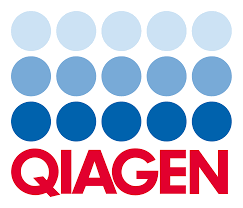August 7, 2018 PR-M08-18-NI-018
GERMANTOWN, Md. & HILDEN, Germany, and RENO, Nev.--(BUSINESS WIRE)--QIAGEN N.V. (NYSE: QGEN; Frankfurt Prime Standard: QIA) and Hamilton Robotics, a privately held leader in automation and liquid handling technology, today announced a new collaboration to improve processing of QIAGEN’s QuantiFERON-TB Gold Plus (QFT-Plus) diagnostic test through the integration of Hamilton’s Microlab® STAR™ automated liquid handling workstation into the QFT-Plus assay workflow. QIAGEN’s fourth-generation QuantiFERON-TB Gold Plus is the modern gold standard for latent tuberculosis (TB) detection.
QuantiFERON-TB Gold Plus offers customers the most flexible workflow among TB screening tests, including a single-tube option that enables efficient screening in large-scale programs by collecting blood samples at patient sites and transporting them to labs for processing up to 53 hours after venipuncture. Use of the Microlab STAR workstation will standardize and automate the manual steps in liquid handling for those samples, which can reduce hands-on time by 50% or more, provide greater ease of use and ensure consistency in pre-analytic methods, reducing processing errors and variability between runs.
“We are pleased to collaborate with Hamilton, a proven leader with a track record of providing best-in-class liquid handling technology solutions, to further improve the automation of our QuantiFERON-TB Gold Plus test for customers,” said Thierry Bernard, Senior Vice President, Head of the Molecular Diagnostics Business Area at QIAGEN N.V. “This integrated workflow, which has potential to be rolled out globally, should significantly improve laboratories’ economics and ease of use for the QuantiFERON-TB technology, especially in clinical markets that increasingly rely on the single-tube collection version of the test.”
Michael Mouradian, Director of Robotics at Hamilton Robotics added, “Our collaboration with QIAGEN puts the clinician and patient at center stage when it comes to tuberculosis testing. With this hands-free automated workflow, everyone can be confident that the next steps in patient care are based on highly accurate and timely results.”
Contacts
QIAGEN
Investor Relations
John Gilardi
+49-2103-29-11711
or
Dr. Sarah Fakih
+49-2103-29-11457
e-mail: ir@QIAGEN.com
or
Hamilton Robotics
Chere Griffin
Expression Marcom
+1-908-818-9463
e-mail: CGriffin@expressionmarcom.com
or
Public Relations
Dr. Thomas Theuringer
+49-2103-29-11826
or
Robert Reitze
+49-210-29-11676
e-mail: pr@QIAGEN.com

Nice Insight, established in 2010, is the research division of That’s Nice, A Science Agency, providing data and analysis from proprietary annual surveys, custom primary qualitative and quantitative research as well as extensive secondary research. Current annual surveys include The Nice Insight Contract Development & Manufacturing (CDMO/CMO), Survey The Nice Insight Contract Research - Preclinical and Clinical (CRO) Survey, The Nice Insight Pharmaceutical Equipment Survey, and The Nice Insight Pharmaceutical Excipients Survey.
